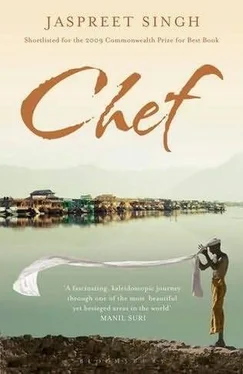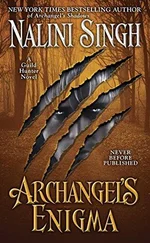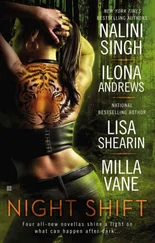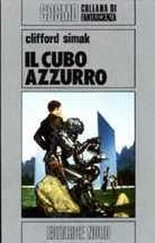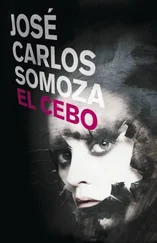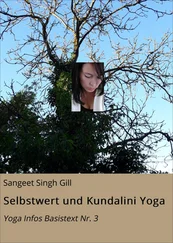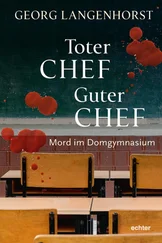‘The color comes from the mirchi.’
‘But why is the dish so intensely red?’
‘Redness comes from the Kashmiri chilies,’ she says. ‘And mawal flowers.’
‘I accept. But, in the absence of tomatoes where does the khatta taste come from?’
‘Khatta is due to curds only.’
‘I am hungry,’ the nurse roars in English, unable to comprehend Kashmiri.
Irem would not sit on the sofa or in the chair. She sat on the carpet. So I spread a white calico sheet on the carpet and transferred the dishes there, and that is how it all began. She closed her eyes and lifted her palms and said a small prayer to Allah and started eating slowly, then picked up speed. Suddenly she remembered she was not alone in the room and slowed down again. She used her left hand to eat, and once or twice licked her fingers.
During dinner she opened up to us and shared her story. She was no longer hesitant.
She had jumped into the river to end her life. To end one’s life is against religion, she said. It is a sin. But the life she was leading was worse than death. Her husband and his mother criticized her constantly for not being able to bear a child.
It was a sunny October morning, she told us, and there was taste of bitter almonds in my mouth and suddenly I knew what I was going to do. I walked to the high rock by the river, and jumped in. Before I jumped I saw a vision of angels and prayed to Khuda to please kill me. Now, I am being punished by him for wanting to commit khud-qushi.
I did not drown. Instead I floated down the river to the Indian side, where I was fished out by a border guard. I told the guard that I was from border-cross and that I was not a rebel. Where is your passport and visa? he asked me. Why have you entered the country illegally? he asked me. It was then he handed me over to the military, and the military sent me to this hospital, she said.
Irem’s pheran had a strange embroidery on it. She had jumped into the river wearing that very pheran, and it had clung to her body during her journey from the enemy’s land to our land. That night, after listening to her story, I biked to the General’s residence not only with the tiffin-carriers and cutlery, but also with Irem’s pheran. She had stained the pheran during dinner, and the nurse had asked me to drop the garment at the washerman’s hut on the way.
Cycling to the General’s residence I kept returning to everything that had transpired during the dinner. It was like replaying a black and white film again and again. Every attempt was unsatisfactory. So I would start again. Fail again. Start again. I took the pheran to my room. When my assistant was not around I smelled the garment. It smelled of the sweat of a beautiful woman. The embroidered pattern on the hem was almost like a leaf. I did not know the name of the pattern, but a few months later a different woman would reveal to me the name of it. It is called paisley, she would tell me. Back in those days (and nights) the more attention I paid to paisley, the more I felt that the pattern ought to be a symbol of something.
That was the first night Kashmir felt like home to me. Despite that I lay in bed with my shoes and uniform. The assistant reminded me once or twice to change my clothing, but I asked him to bugger off, and I kept recalling the five minutes I spent absolutely alone with Irem. The nurse had stepped out to attend a patient in the ward, and I had spent five full minutes alone with Irem.
‘I am sorry,’ I said. ‘This morning I raised my voice.’
‘No problem,’ she said.
‘Is there something you would like me to do?’
‘No.’
‘I would like to help you.’
‘No.’
‘Please tell me.’
‘If possible, bring me the Qur’an.’
‘But?’
‘But what?’
‘You cannot read.’
‘I can hold the Qur’an.’
There was an awkward silence. Her eyes were red. She needed the book more than she needed my food.
‘There are many varieties of Muslims?’ I asked. ‘I have heard about the Shia, the Sunni and the Sufi. What kind of a Muslim are you?’
‘Homeless,’ she said.
Her response eased some of the tension between us.
‘You see that mountain up there, where the bright lights are?’ I pointed through the window. ‘That is where my room is.’
She nodded.
‘I have lived there, in the barracks, for a while now. Sometimes when I am down in the valley, or here in the hospital at night, the mountain up there looks like a huge aircraft. When the lights are turned on in the evening it appears as if the aircraft is ready to depart.’
She remained silent. I kept talking. Now that I think about it what a fool I made of myself. To this day I have not figured out how to stop talking when in the presence of a beautiful woman.
‘On certain nights,’ I said, ‘I hear the sound of sirens, ambulances rushing towards this hospital, and I feel as if the aircraft is about to explode.’
She moved closer to the window, carrying her plate of Rogan Josh. There was a slight limp in her walk.
‘You talk like men in Bombay films.’
The way she said this so fearlessly, so unexpectedly, impressed me a lot.
‘The mountain is visible from our side also,’ she continues. ‘From the other side of the river, we too get to see it. The children in our village point at the memorial at the very top of the mountain. Have you been there?’
‘No,’ I say.
She turns. She is so beautiful. I can’t point at a concrete detail of her face and say that is why she is beautiful. I just turn away my eyes.
‘Mihirukula’s memorial,’ she says.
I force my gaze and desperately try to find a flaw in that beauty. I fail. Then, I succeed. There are big gaps between her teeth. Her teeth are not beautiful.
‘Mihirukula?’
‘The White Hun’s memorial,’ she says.
‘The Hun?’
She speaks very slowly, revealing her teeth. She tells me something women don’t usually tell men they have just met. There was a garden in our village. Now it is a ruin. The White Hun came with a huge army of elephants. Elephants? I clarify. Yes, she says. Elephants. One of them fell from the cliff, 10,000 feet below. The Hun loved it. He was amused by the shriek of the falling animal. With one little finger he commanded his men to kick off four hundred elephants purely for his amusement. Trumpet-like sounds. For days afterwards my ancestors heard the echoes of dying creatures.
Then all was silence.
In my village the ambulance sirens remind us of elephants, she says.
Why did you tell me this?
She tries to sit down. The plate falls from her trembling hand, staining her iridescent pheran. Then the spoon lands in slow motion on the carpet. Why did you tell me? You Kashmiris from top-man to bottom-man are all anti-India. Her eyes turn red like a brick. Saheb, I am not like that, she stammers. Some militants in our village are planning to kill. But I don’t want Kashmir back if most of us end up dead.
‘Who are the men going to kill?’
‘The biggest officer of your military.’
‘The General?’
‘I think so.’
‘How do you know?’
‘I heard it in the village. Please save him. His car must never pass the Zero Bridge.’
‘Not a word more.’
The nurse was angry with Irem when she returned. There was Rogan Josh on the carpet, and its long trail was visible on Irem’s pheran. She asked me to step out for a minute, and when I re-entered the room Irem had changed into a striped kurta-pyjama. She looked uncomfortable in the oversize pyjama-kurta. The drawstring dangled. I turned my gaze downwards and focused only on the carpet, her feet, and her words.
Next morning I woke up with the enemy’s pheran under my pillow. It had a mysterious odor. I sent my assistant to the bazaar and washed the pheran along with my clothes, and dried it on the line in my room, hidden between my clothes. While ironing I was very careful not to break the buttons at the back. Two were missing. While ironing I thought, isn’t it funny that in the Hindi language the word for iron and the word for woman is one and the same. I sprinkled water on the garment and ironed till all the wrinkles disappeared.
Читать дальше
Конец ознакомительного отрывка
Купить книгу
